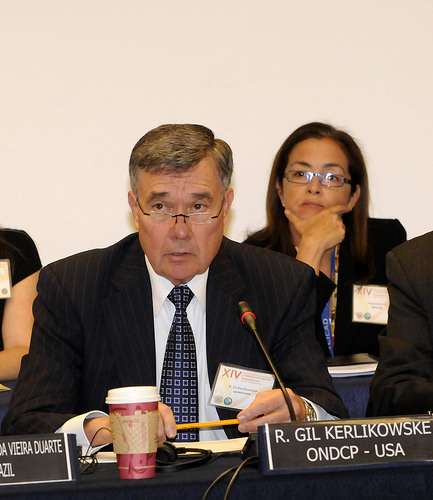Obama's Own Drug Czar Is Now Publicly Criticizing Him for Not Responding to Legal Pot in Colorado and Washington

It's been 97 days since Colorado and Washington voters legalized the recreational sale of marijuana in their states, and the Obama administration has yet to disclose how it will respond.
At least one prominent figure is tired of waiting. In an interview with the Canadian publication Macleans, Office of National Drug Control Policy Director Gil Kerlikowske—Obama's own drug czar—says his boss's administration "has not done a particularly good job of talking about…where we should be headed on our drug policy."
The relevant section of the Q&A is here:
Q: You've written on the White House website that "coming out of the election, we are in the midst of a national conversation on marijuana." Is the U.S. headed for a patchwork of policies, state by state?
A: I think a patchwork of policies would create real difficulties. We still have federal law that places marijuana as being illegal. The administration has not done a particularly good job of, one, talking about marijuana as a public health issue, and number two, talking about what can be done and where we should be headed on our drug policy.
Q: There was such an evolution on gay marriage within this administration that it's hard not to think that something might change on marijuana.
A: I don't look at marijuana as a human right, or a civil right, or even in the same venue as gay marriage. This is a public health issue. There are significant health concerns around marijuana from all the science, not ideology. I don't see the legalization of drugs and making them widely available as a good thing, and I don't think locking everyone up is a good thing either.
Equally fascinating is Kerlikowske's belief that it doesn't matter whether people with drug problems enter treatment voluntarily:
[I]f people go into drug treatment—and the research bears this out clearly—if they knock on the door and say, look, I have a drug problem and I need help, or if they go in with handcuffs on—the outcomes are pretty similar. The criminal justice system, if it has the right resources, can be incredibly helpful at getting people into treatment.
Read the whole interview here.
H/T Tom Angell


Show Comments (102)